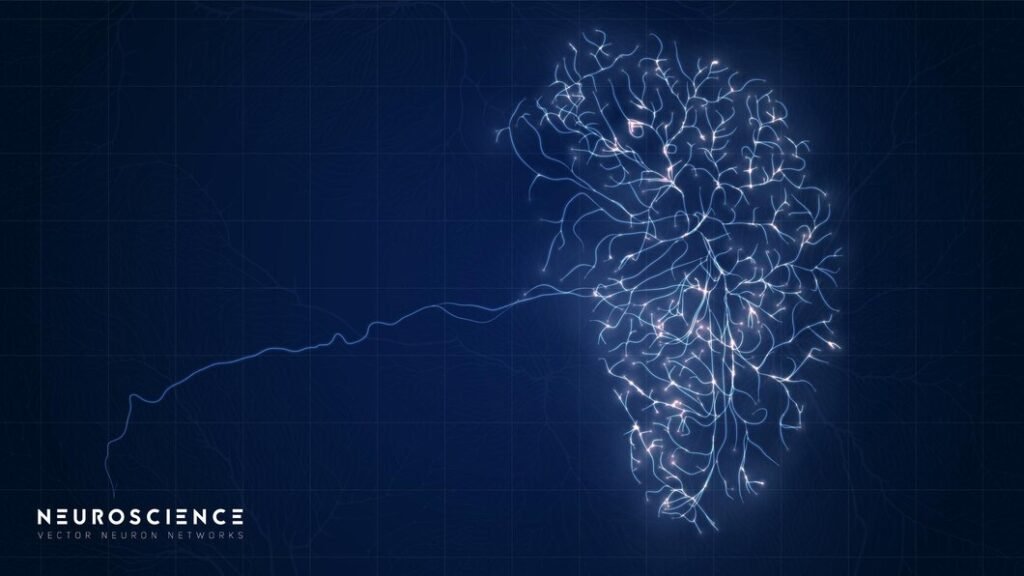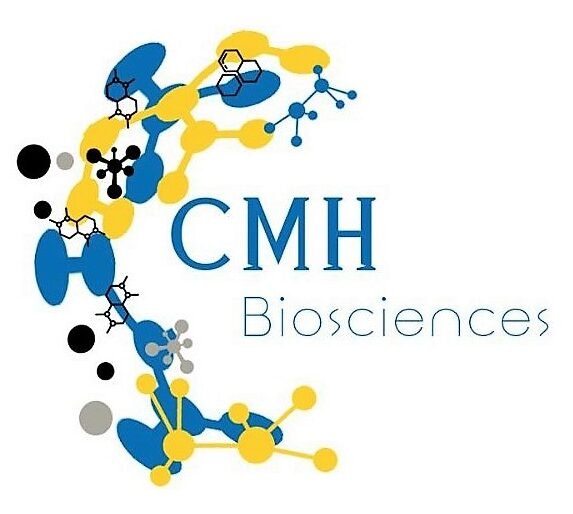Nicotinamide Adenine Dinucleotide (NAD+) is a coenzyme found in all living cells that is vital to cellular metabolism and energy production. Beyond its role in energy metabolism, NAD+ also plays a crucial part in maintaining the health and function of the nervous system. Emerging research has uncovered its potential involvement in neuroprotection, aging, and the treatment of various neurological disorders. In this article, we will explore the role of NAD+ in the nervous system, its impact on neurodegenerative diseases, and how boosting NAD+ levels may provide therapeutic benefits for neurological disorders.
Table of Contents
What is NAD+?
NAD+ is a coenzyme that exists in two forms: NAD+ (oxidized) and NADH (reduced). It serves as a critical molecule in various biochemical processes, particularly in:
– Cellular respiration: NAD+ helps convert nutrients into ATP (adenosine triphosphate), the primary source of energy for cells.
– DNA repair: NAD+ is required for activating enzymes involved in repairing DNA damage, such as Poly ADP-Ribose Polymerases (PARPs).
– Gene expression: NAD+ activates sirtuins, a family of proteins that regulate cellular health, stress resistance, and metabolism.
– Oxidative stress regulation: NAD+ helps cells manage oxidative stress and protect against cellular damage caused by free radicals.
NAD+ and the Nervous System

The brain and nervous system consume a significant amount of energy, and the proper functioning of neurons depends on a steady supply of NAD+. Neurons, highly metabolic cells, rely on efficient mitochondrial function and energy production for proper communication and survival. NAD+ supports this process by facilitating energy production in the mitochondria. In addition, NAD+ influences several pathways that are directly involved in neuroprotection, cellular repair, and inflammatory responses.
1. Energy Metabolism in Neurons
Neurons require large amounts of energy to sustain synaptic activity and maintain membrane potentials. NAD+ plays an essential role in the production of ATP through oxidative phosphorylation within the mitochondria. This energy production is critical for maintaining normal neuronal function. When NAD+ levels decrease, mitochondrial function is impaired, leading to reduced energy production, neuronal stress, and, eventually, cell death. This decline is a significant factor in the development of neurodegenerative diseases such as Alzheimer’s and Parkinson’s disease.
2. DNA Repair and Neuroprotection
The brain is constantly exposed to oxidative stress due to high metabolic activity, and this can cause DNA damage. NAD+ is essential for activating PARPs, enzymes involved in repairing DNA damage. Decreased NAD+ levels impair DNA repair mechanisms, leading to the accumulation of genetic mutations and neuronal dysfunction. Enhancing NAD+ levels has been shown to improve DNA repair, reduce oxidative stress, and protect neurons from damage.
3. Sirtuin Activation and Neuroprotection
Sirtuins, particularly SIRT1, are a family of NAD+-dependent enzymes that regulate cellular health, inflammation, and longevity. Sirtuins are involved in processes such as mitochondrial biogenesis, neuroinflammation control, and stress resistance. Activation of SIRT1 by NAD+ has been shown to protect neurons from apoptosis (programmed cell death) and reduce inflammation in the brain. As a result, sirtuins are considered key players in the prevention of neurodegenerative diseases.
4. Oxidative Stress Management
The brain is highly vulnerable to oxidative stress due to its high oxygen consumption and lipid-rich environment. Oxidative stress occurs when there is an imbalance between free radicals and the body’s ability to detoxify them, leading to cellular damage. NAD+ plays a crucial role in reducing oxidative stress by maintaining the balance of NAD+/NADH ratios and promoting antioxidant defenses. Low levels of NAD+ exacerbate oxidative damage, contributing to the progression of neurodegenerative diseases.
NAD+ and Neurological Disorders
A growing body of research has demonstrated that declining NAD+ levels are associated with the onset and progression of several neurological disorders. Boosting NAD+ levels has been proposed as a therapeutic strategy for combating these diseases.
1. Alzheimer’s Disease
Alzheimer’s disease (AD) is a progressive neurodegenerative disorder characterized by memory loss, cognitive decline, and the accumulation of amyloid-beta plaques and tau tangles in the brain. Mitochondrial dysfunction and impaired energy metabolism are common features of AD, and low NAD+ levels have been observed in patients with the disease.
Studies suggest that enhancing NAD+ levels could provide neuroprotection in Alzheimer’s disease. NAD+ supplementation has been shown to improve mitochondrial function, reduce amyloid-beta accumulation, and enhance cognitive function in animal models of AD. A study published in Neuron found that increasing NAD+ levels through supplementation with nicotinamide riboside (NR), a precursor of NAD+, improved cognitive function and reduced neuroinflammation in a mouse model of Alzheimer’s disease.
2. Parkinson’s Disease
Parkinson’s disease (PD) is a neurodegenerative disorder that affects motor function due to the loss of dopaminergic neurons in the brain. Mitochondrial dysfunction, oxidative stress, and reduced NAD+ levels have been implicated in the pathogenesis of PD.
Research suggests that boosting NAD+ levels may help protect dopaminergic neurons from degeneration in Parkinson’s disease. In a study published in Cell Reports, researchers found that increasing NAD+ levels with nicotinamide mononucleotide (NMN) supplementation improved mitochondrial function and reduced neuronal death in a mouse model of Parkinson’s disease . Furthermore, sirtuin activation, which depends on NAD+, has been shown to promote neuroprotection and reduce inflammation in PD models.
3. Multiple Sclerosis
Multiple Sclerosis (MS) is an autoimmune disorder that affects the central nervous system, leading to the degeneration of myelin, the protective sheath around neurons. NAD+ depletion has been observed in both animal models and patients with MS, and it has been linked to neurodegeneration and increased oxidative stress.
Supplementing NAD+ precursors has been shown to have neuroprotective effects in MS models. A study in Nature Communications demonstrated that boosting NAD+ levels with NMN reduced inflammation, promoted remyelination, and protected neurons from degeneration in a mouse model of MS . These findings suggest that NAD+ supplementation could be a potential therapeutic strategy for managing MS and reducing neurodegenerative damage.
4. Stroke and Ischemic Injury
Stroke occurs when blood flow to a part of the brain is blocked, resulting in ischemic injury and neuronal death. Ischemic strokes lead to rapid depletion of NAD+ in affected brain regions, contributing to energy failure and neuronal apoptosis.
Research has shown that restoring NAD+ levels after ischemic injury can reduce the extent of neuronal damage and improve recovery outcomes. A study published in Stroke found that increasing NAD+ levels after ischemic injury reduced brain damage and improved motor function in animal models of stroke . Enhancing NAD+ levels could, therefore, be a promising approach to improving outcomes in patients with stroke.
5. Amyotrophic Lateral Sclerosis (ALS)
Amyotrophic lateral sclerosis (ALS) is a neurodegenerative disorder that affects motor neurons, leading to muscle weakness and eventual paralysis. Oxidative stress, mitochondrial dysfunction, and impaired NAD+ metabolism have been implicated in the progression of ALS.
Increasing NAD+ levels through supplementation has shown potential in protecting motor neurons and slowing disease progression in ALS models. A study published in Nature Neuroscience demonstrated that boosting NAD+ levels in a mouse model of ALS improved mitochondrial function, reduced oxidative stress, and extended lifespan .
How to Boost NAD+ Levels in the Nervous System
Given the importance of NAD+ in neuroprotection, strategies to boost NAD+ levels have gained significant attention. Some of the most effective ways to increase NAD+ levels include:
1. Exercise: Regular physical activity has been shown to enhance NAD+ levels and improve mitochondrial function.
2. Intermittent Fasting: Caloric restriction and intermittent fasting have been shown to increase NAD+ levels by promoting mitochondrial biogenesis and sirtuin activation.
3. NAD+ Precursors: Nicotinamide Riboside (NR) and Nicotinamide Mononucleotide (NMN) are two NAD+ precursors that have been widely studied for their ability to boost NAD+ levels and promote neuroprotection.
4. Sirtuin Activators: Resveratrol, a natural compound found in grapes, has been shown to activate sirtuins and enhance NAD+ levels, promoting neuroprotection.
Conclusion
NAD+ plays a vital role in the health of the nervous system by supporting energy production, DNA repair, and oxidative stress management. As NAD+ levels decline with age, neurons become more susceptible to damage, leading to the onset of neurological disorders. Research has shown that boosting NAD+ levels can protect neurons, improve mitochondrial function, and reduce the risk of neurodegenerative diseases such as Alzheimer’s, Parkinson’s, and multiple sclerosis.
By understanding the role of NAD+ in the nervous system, researchers and clinicians can develop targeted therapies that aim to restore NAD+ levels and protect against neurodegeneration. However, while the potential of NAD+ supplementation in treating neurological disorders is promising, further clinical studies in humans are needed to fully understand its therapeutic potential.
References:
1. Verdin, E. (2015). NAD+ in aging, metabolism, and neurodegeneration. Science, 350(6265), 1208-1213.
2. Fang, E. F., et al. (2019). NAD+ in aging: Molecular mechanisms and translational implications. Trends in Cell Biology, 29(9), 579-590.

